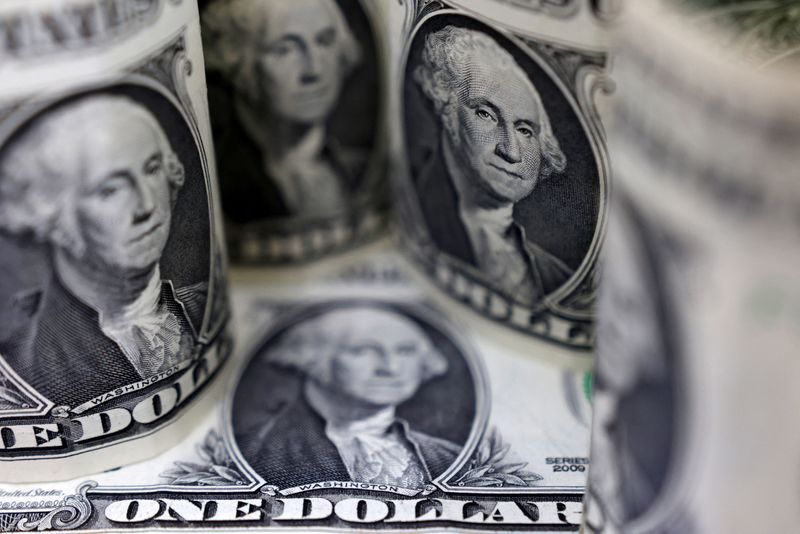Dollar slips, but on track for hefty gains in 2024
The US dollar edged lower Tuesday, but was still on course to record hefty gains in 2024 given the more cautious stance by the Federal Reserve regarding rate cuts and expectations for the incoming Donald Trump administration.
At 05:35 ET (10:35 GMT), the Dollar Index, which tracks the greenback against a basket of six other currencies, traded 0.1% lower to 107.830, but remains just below the two-year high seen earlier this month.
The index was still on course for monthly gains of around 1.5%, bringing year-to-date gains to almost 7%. Dollar in demand
The Fed’s recent signal of fewer cuts in 2025 has provided renewed strength to the dollar, pushing the benchmark 10-year Treasury yield to a more than seven-month high last week.
The US central bank projected just two 25 bp rate cuts in 2025 at its last policy meeting of the year earlier this month, a sharp reduction from the four cuts it had indicated in September.
The election of Donald Trump as the new president also gave the dollar a boost as his policies of looser regulation, tax cuts, tariff hikes and tighter immigration are seen as both pro-growth and inflationary, and are likely to contribute towards the Fed’s cautious stance.
Trading volumes are likely to be limited Tuesday, ahead of Wednesday’s holiday, and the focus will then be on weekly jobless numbers and ISM manufacturing PMI data later in the week, as well as comments from FOMC member Thomas Barkin . Euro looks to ECB rate cuts
In Europe, EUR/USD edged higher to 1.0409, trading in a tight range with the German market on holiday.
The pair is set for a decline of just under 6% this year, with the European Central Bank likely to cut interest rates more sharply than the Federal Reserve in 2025.
The ECB cut interest rates earlier this month and signaled more cuts ahead as economic growth in the region stagnates, while the US central bank recently cut its projection for rate reductions in the new year.
The eurozone economy could also suffer from President-elect Donald Trump's trade policies, given the prospect of tariff hikes and the potential of a trade war.
GBP/USD traded 0.1% lower to 1.2539, moving in a tight trading range ahead of Thursday’s manufacturing PMI release.
That is expected to show that the country’s manufacturing sector remained firmly in contraction in December, after data showed that Britain's economy failed to grow in the third quarter. Chinese manufacturing activity expands in December
In Asia, USD/CNY rose 0.6% to 7.3443, after China’s manufacturing activity expanded for a third straight month in December as a raft of fresh stimulus measures continued to provide support, purchasing managers index data showed on Tuesday.
However, the rise was slightly lower than market expectations and below the previous month’s reading.
Markets are holding out for more clarity on Beijing’s plans for stimulus measures in the coming year. Recent reports suggested that the country will ramp up fiscal spending to support economic growth.
USD/JPY traded 0.1% higher to 156.92 on Tuesday after it reached a five-month high in the previous session, with the pair up more than 11% over the course of the year.
The Bank of Japan signaled that it will take its time to consider more interest rate hikes after the central bank held interest rates steady at 0.25% at this month's meeting.
Source: Investing.com
